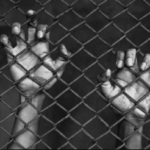Sexual Assault: ‘Part of University Life’

Recommendations have been made for an independent investigation into the problem of sexual assaults at Australian universities, after a survey found that students are suffering “unacceptable” rates of victimisation.
The findings arise from a landmark survey of 31,000 Australian students, many of whom report being assaulted on the way to university, inside residential colleges, and even by the staff supervising them.
The results also suggest that women are four times more likely to be sexually assaulted than men in university residences, and that post-graduate students are more likely to be harassed or assaulted by a staff member.
One of the most startling findings is that many victims are unaware of how and where to report assaults, while two thirds of those who witness assaults take no action.
The survey also found that only 6 per cent of students think their university is doing enough to provide clear directions on sexual harassment procedures and support services.
Independent investigation recommended
Sexual Discrimination Commissioner, Kate Jenkins, has released nine recommendations for reform in the wake of the report, including an independent investigation into residential colleges.
“The unavoidable conclusion of the data we have gathered across all 39 Australian universities is that incidents of sexual assault and sexual harassment are occurring at unacceptable rates,” she remarked.
“To put this in context, in a lecture theatre containing 100 students, at least one, and possibly two, students have been sexually assaulted in the past two years.”
The findings won’t come as a shock to all. Earlier this year, advocacy group End Rape on Campus accused universities of covering up sexual assaults on campus, in its submission to the Australian Human Rights Commission.
In its submission, the group also reported that there had been only six expulsions in the past five years despite more than 500 official complaints, 145 of them relating specifically to rape.
End Rape on Campus believes universities “take plagiarism more seriously than they do rape”, failing to support victims of sexual assault and harassment, and in some cases, hiding details of crimes out of fear of damaging their reputations.
The group has accused universities of having inadequate support mechanisms and response policies, and using untrained and insensitive staff to deal with complaints.
They say ‘victim blaming’ is a common theme, causing additional trauma to those who are already in a vulnerable emotional state.
One woman, who reported her sexual assault to her college, says she was asked about her drinking habits and what she would do in the future to make sure this didn’t happen to her again.
Culture change required
With the data now in the public domain, universities may be forced to tackle the issue head on, and fundamentally change the way sexual assault is not only viewed by students and staff, but also the way that it is treated, with more support for victims and harsher penalties for accused people.
Law experts say that the latest report could also potentially open the door for a wave of victims to come forward seeking damages, due to breaches of ‘duty of care.’
A global issue
Sexual assaults in tertiary institutions is not just a national problem.
The magnitude of the issue was highlighted in the case of former Stanford University student Brock Turner, with victims’ groups around the globe outraged about the leniency afforded to Turner after a jury found him guilty of raping a woman on campus.
The District Attorney was appalled by the sentence, and at the time, remarked.
“Campus rape is no different than off-campus rape. Rape is rape.”
The victim’s impact statement resonated with women everywhere when it was released to the public, and was a blunt reminder of the universal, devastating and life-long impact of sexual assault.
Universities everywhere have been given a wakeup call that there needs to be better protection for students.
For some universities, it may mean putting an end to on-campus living. Universities in America are also currently grappling with this very issue and the embedded culture of heavy drinking, drug taking, irresponsible behaviour and sexual assault that seems to go hand in hand with the raucous fraternity and sorority house life.
Harvard is the latest university to be considering closing these facilities for good.







